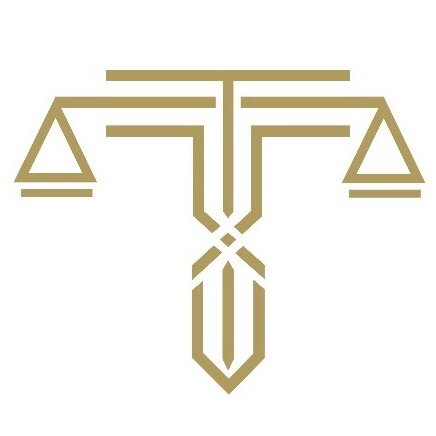Best Debt & Collection Lawyers in Khobar
Share your needs with us, get contacted by law firms.
Free. Takes 2 min.
List of the best lawyers in Khobar, Saudi Arabia
Saudi Arabia Debt & Collection Legal Articles
Browse our 1 legal article about Debt & Collection in Saudi Arabia written by expert lawyers.
- Options For Managing Debt in Saudi Arabia
- While expanding credit is usually a crucial component of development, any company conducting business in the competitive Saudi Arabian market must first properly manage its receivables. Commercial defaults and unpaid bills seriously affect long-term company stability, profitability, and cash flow.Many companies without a clear escalation plan or uninformed of the... Read more →
About Debt & Collection Law in Khobar, Saudi Arabia
Debt and collection law in Khobar, a city in the Eastern Province of Saudi Arabia, governs the processes and regulations surrounding the repayment of debts. This area of law is designed to protect both creditors seeking repayment and debtors who may be experiencing financial hardships. The legal framework is influenced by Islamic law, particularly Sharia principles, and the Saudi legal code. It addresses the obligations of debtors to fulfill their financial agreements and the rights of creditors to pursue collections in a lawful and ethical manner.
Why You May Need a Lawyer
There are several scenarios where the expertise of a lawyer specializing in debt and collections can be invaluable. These include:
- Being pursued aggressively or unfairly by debt collectors.
- Facing lawsuits related to unpaid debts.
- Needing advice on debt restructuring or negotiating repayment terms.
- Wanting to understand your legal rights and responsibilities as a debtor or creditor.
- Experiencing cross-border debt troubles, involving creditors from outside Saudi Arabia.
- Dealing with bankruptcy filings or insolvency proceedings.
Local Laws Overview
In Khobar, the debt and collection laws are framed primarily under the broader jurisdiction of Saudi Arabian law. Some key aspects include:
- Sharia Influence: The legal framework includes Islamic financial principles which emphasize fairness and morality in transactions.
- Collection Practices: Collectors are required to adhere to ethical practices and are prohibited from using harassment or intimidation.
- Legal Proceedings: Debt-related disputes may require arbitration, and court processes follow specific Sharia guidelines.
- Bankruptcy Laws: Recent reforms have introduced structured bankruptcy laws to provide a clear process for handling insolvency.
- Enforcement of Judgments: Legal judgments in favor of debt repayment can be enforced through the Ministry of Justice.
Frequently Asked Questions
What should I do if I'm being harassed by a debt collector?
Document all interactions with the collector, and consult with a lawyer who can offer guidance on your rights and help stop unlawful practices.
Can I negotiate with my creditor to restructure my debt?
Yes, negotiation is often a viable option. A lawyer can assist in facilitating these discussions, ensuring a fair agreement is reached.
What happens if I cannot repay my debts under the current terms?
Consider seeking legal advice to explore debt restructuring, or in severe cases, formal bankruptcy proceedings according to Saudi law.
How does bankruptcy work in Khobar?
The new bankruptcy law provides a three-tier relief system: protective settlement, financial restructuring, and liquidation. Consulting a lawyer can help choose the appropriate route.
Can cross-border debts be pursued in Saudi courts?
Yes, cross-border debts can be pursued, but they may involve additional complexity and require specialized legal assistance.
Is there a statute of limitations on debt collection in Saudi Arabia?
Yes, the statute of limitations varies with the type of debt but consulting an attorney will provide clarity specific to your situation.
What legal protections do I have as a debtor?
Debtors are protected against unfair collection practices. Legal guidance can help ensure your rights are not violated.
Can creditors seize assets for unpaid debts?
With a court judgment, creditors can potentially claim assets, but there are legal processes to contest this with a lawyer's aid.
What court handles debt disputes in Khobar?
Debt disputes are typically handled by specialized commercial courts, which operate under the Ministry of Justice in Saudi Arabia.
Are there alternatives to legal action for resolving debt issues?
Yes, mediation or arbitration can serve as alternatives to litigation, often saving time and resources.
Additional Resources
Consider reaching out to the following resources for assistance with debt and collection issues:
- The Saudi Ministry of Justice: Offers information and resources related to debt laws and enforcement.
- Local Legal Aid Organizations: Provide support and guidance for those unable to afford private lawyers.
- The Saudi Arabian Monetary Authority: Regulates financial transactions and can provide guidelines on lawful debt collection practices.
Next Steps
If you require legal assistance in handling debt and collection issues in Khobar, here are the steps you should consider:
- Consultation: Contact a local lawyer specializing in debt and collection for a consultation to discuss your situation.
- Gather Documentation: Collect all relevant documents, such as contracts, correspondence, and payment records.
- Legal Strategy: Work with your lawyer to develop a strategy that addresses your concerns and outlines next steps.
- Execute Plan: Follow the legal plan, whether it involves negotiation, litigation, or alternative dispute resolution.
- Stay Informed: Keep abreast of any changes in local laws that may affect your situation by consulting legal resources regularly.
Lawzana helps you find the best lawyers and law firms in Khobar through a curated and pre-screened list of qualified legal professionals. Our platform offers rankings and detailed profiles of attorneys and law firms, allowing you to compare based on practice areas, including Debt & Collection, experience, and client feedback.
Each profile includes a description of the firm's areas of practice, client reviews, team members and partners, year of establishment, spoken languages, office locations, contact information, social media presence, and any published articles or resources. Most firms on our platform speak English and are experienced in both local and international legal matters.
Get a quote from top-rated law firms in Khobar, Saudi Arabia — quickly, securely, and without unnecessary hassle.
Disclaimer:
The information provided on this page is for general informational purposes only and does not constitute legal advice. While we strive to ensure the accuracy and relevance of the content, legal information may change over time, and interpretations of the law can vary. You should always consult with a qualified legal professional for advice specific to your situation.
We disclaim all liability for actions taken or not taken based on the content of this page. If you believe any information is incorrect or outdated, please contact us, and we will review and update it where appropriate.












